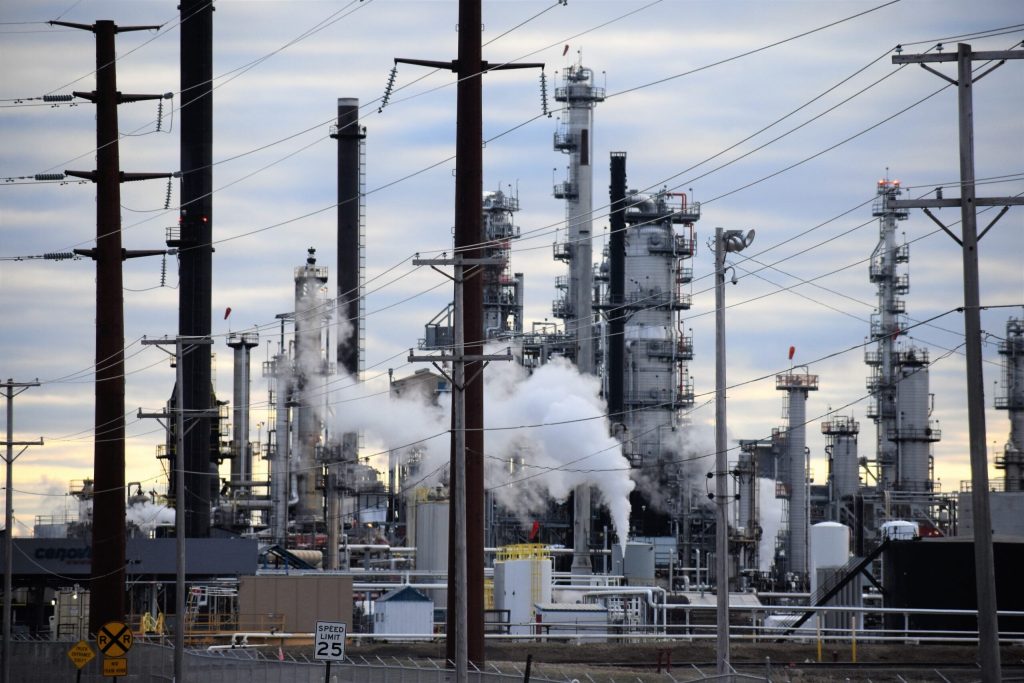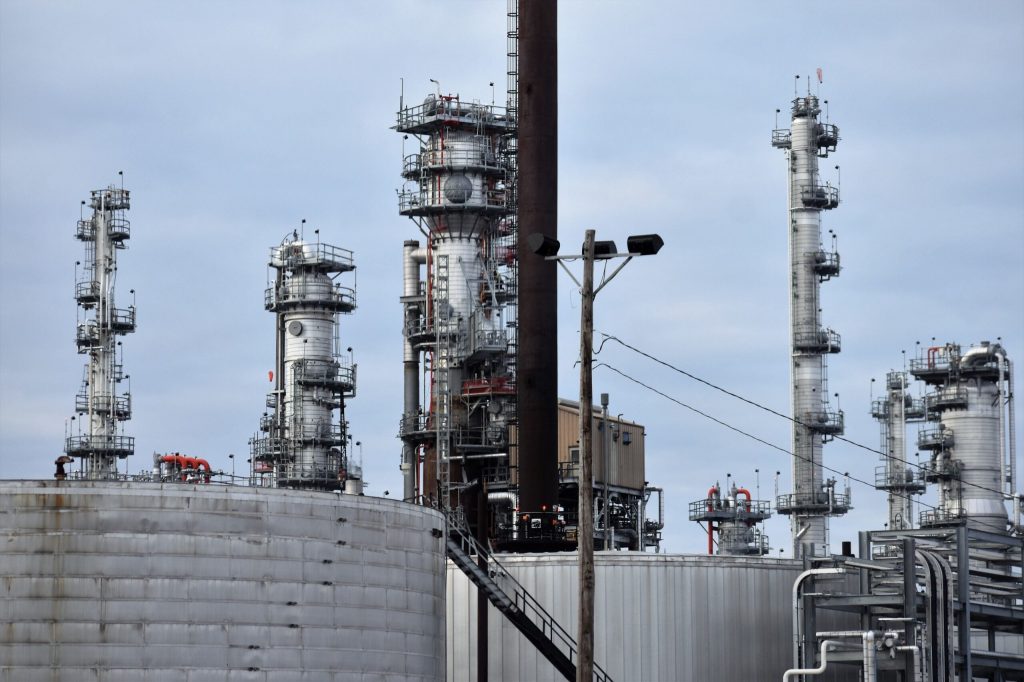Oil Refinery Repeatedly Violated Wisconsin Air Quality Regulations
Since January, Wisconsin DNR has alleged at least 27 violations of the state's air pollution control laws

The Cenovus refinery in Superior cost $1.2 billion to rebuild. The refinery resumed operations in 2023. Danielle Kaeding/WPR
State environmental regulators allege Wisconsin’s only oil refinery has committed more than two dozen violations of the state’s air pollution control laws.
Some residents in Superior say the allegations underscore the need for a regulatory air monitor in the city, which is currently lacking.
The Wisconsin Department of Natural Resources issued the company two notices of violations this year in January and August. The DNR is alleging 27 total violations that include exceeding emission limits for multiple pollutants under its permit, as well as failing to conduct required sampling and monitoring.
Craig Czarnecki, a DNR spokesperson, said permit limits are set in line with state and federal regulations to protect public health and the environment. However, he declined to comment further on the causes behind the alleged violations because enforcement remains ongoing.
“The alleged violations do not necessarily mean that the air quality around the facility exceeded state or federal air quality standards,” Czarnecki said.
In a Jan. 13 letter, the DNR alleged 17 violations that include failure to limit emissions of sulfur dioxide, nitrogen oxides, greenhouse gas emissions and carbon monoxide that can come from burning fuels. Exposure to such pollutants can make it difficult to breathe and worsen respiratory issues like asthma or lead to other serious health problems.
It’s relatively significant that the state issued the notices of violation, said Steph Tai, an environmental law professor at the University of Wisconsin-Madison. Tai said that indicates lower level efforts to address concerns didn’t work.
“The alleged violations suggest that the company is not meeting the permit requirements, and those permit requirements are designed to protect human health,” Tai said.
“When deviations from permitted conditions occur, the Refinery takes action to bring the facility back into compliance as promptly and safely as possible,” a Cenovus spokesperson said. “The Refinery remains cooperative with the WDNR throughout this process, self-reports deviations when they occur, and remains committed to meeting our regulatory requirements.”
WPR obtained letters summarizing enforcement meetings that state the company believes emission exceedances were short-term and not expected to reoccur. Although, the company said it continues to confront issues due to the design and safe operation of a unit used to make gasoline at the refinery.

The Cenovus refinery in Superior cost $1.2 billion to rebuild. The refinery resumed operations in 2023. Danielle Kaeding/WPR
EPA lists refinery with ‘high priority violation’ of Clean Air Act
The EPA’s website shows the refinery has a “high priority violation” of the federal Clean Air Act, which can indicate violations that take place regularly or intermittently for at least seven days. The agency’s website shows the facility had a significant violation in four of the last 12 quarters.
Based on a 2024 inspection and compliance reports, the DNR found the refinery didn’t monitor fine particle pollution for almost 20 percent of the time from January through April last year.
Superior residents have voiced concerns about odor and increasing emissions of benzene and other pollutants since the refinery resumed operations. The DNR said increased emissions were expected for all pollutants with the refinery starting back up, noting that odors don’t necessarily mean unhealthy air or problems with pollution controls.
Even so, Superior resident Lynn Wohlwend said the smell of sulfur has been pretty constant from the refinery.
“I don’t enjoy being in my yard when that smell is out,” Wohlwend said, who lives about a mile from the facility.
Wohlwend and others want to see more air quality monitoring, citing a proposal by utilities to build a $1 billion gas-fired power plant in the city. The DNR previously conducted monitoring in Superior, but the agency has said it lacks funding to support additional monitors.
Superior resident Patty Lier said the DNR is relying on an air monitor in Duluth, which she noted did not record pollution from the 2018 explosion. The DNR acknowledged the nearest regulatory monitor in Duluth did not detect significant changes to air quality during or after the 2018 fire.
“We would like a regulatory air monitor here because we have the only refinery in the state, and we should have one that actually represents the quality of the air here,” Lier said.
Superior resident Pam Savoy noted the city does have multiple PurpleAir monitors that track air quality, but the air sensors can incorrectly estimate pollutant levels.
The DNR said its air quality monitoring network is funded by federal grants, and the agency doesn’t receive funding to support monitoring beyond what’s federally required or conduct monitoring focused on a specific facility.
Wisconsin oil refinery faces dozens of alleged violations of state pollution control laws was originally published by Wisconsin Public Radio.
If you think stories like this are important, become a member of Urban Milwaukee and help support real, independent journalism. Plus you get some cool added benefits.




















